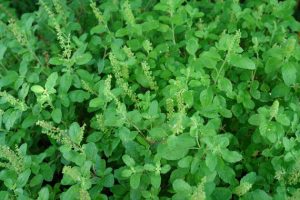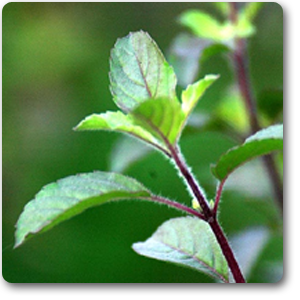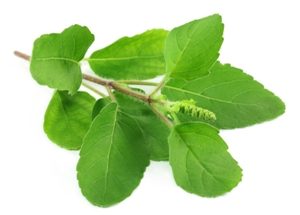
About Tulsi Plant & Uses
Tulsi also is known as ‘holy basil‘ is considered as a good luck charm by many folks. It is considered as it acts as a ward against evil spirits and brings peace, happiness, good health and harmony if planted in homes. Its plantation in homes contains many reasons behind it and hence cannot be ignored by anyone.
Tulsi has always remained as part of Indian culture since ancient times. Indian epics books have also mentioned this thing. Tulsi is also used as home remedies due to its part of Ayurvedic medicines. This herb plant is easily available in every part of India and Southeast Asia. It can also be grown easily where it is not found. This herb contains numerous health benefits in it.
Tulsi scientific name
Tulsi plant is known by several names such as holy basil, sacred basil, Tulasi, Thulasi while Tulsi scientific name is Ocimum Tenuiflorum also known as Ocimum Sanctum
Tulsi plant information
Tulsi, not Tulsi Gabbard has been used in China, India and the Middle East for thousands of years and known as sacred basil after it was introduced to European Christians. This plant comes in three different types known as Rama Tulsi, Krishna Tulsi (Shyam) and Vana Tulsi.

The Krishna Tulsi has purple color shades on its leaves, Rama Tulsi has full green color leaves; whereas Vana Tulsi is a wild plant. They differ in size and colors depending upon the geographical location, rainfall, and type of plant.
Tulsi plant is considered as the religious plant in India and hence people worship it on regular basis. It has a lot if indispensable parts with Ayurvedic medicines and hence its leaves are used for worship purposes and for several events and occasions such as wedding ceremonies.

If the Tulsi plant is not planted in the courtyard of the Hindu house, then it is considered as incomplete. It is believed as a mark of the longevity of life and lots of happiness. Tulsi has been used as a medicinal plant for thousands of years. It is used to improve the ability of the body to cope up with disease and stress. It is also used for the treatment of several ailments, stomach problems, and even heart disease.
Uses of Tulsi
Tulsi is used as an adaptogen in Ayurvedic medicines. This plant is believed to remove stress and restore balance within the body of the human. This plant is also used as a home remedy to treat stomach problems, colds, and other headaches as well.
This plant is used to give taste to tea and also as a dried powder to be ingested. Traditionally it was used for the process of digestion and its associated organs. It was used to remove stomachache, excessive acidity, constipation, etc.
Cold, respiratory infection and cough are also treated with the help of tea made with Tulsi and cloves. Tea made with Tulsi and few drops of honey are used to relieve from cough problem. It is also used to boost the immune system.
Egyptians use Tulsi to treat snake bites while many people rub the leaves of Tulsi plant on mosquito bites to face discomfort. It is also used to reduce fever sometimes while all over the world it is used in cooking for seasoning. Some of the best Tulsi uses are as follows:
- It acts as a detoxifying agent.
- It is used to purify and cleanse.
- It is also considered an antioxidant.
- It works as an antibiotic.
- It soothes inflammation.
- It has antibacterial properties.
- It helps to control uric acid in the body.
- It strengthens immunity.
- It facilitates digestion.
- It also works as an adaptogen.
- How to worship Tulsi plant at home
This plant is generally worshipped by all houses in India and is considered as a religious plant but according to Vastu rules and regulations, there are some important points that must be considered before planting a Tulsi plant. Some points are also be followed while worshipping it at home:
- This plant should be placed at the place where sunlight can be reached easily and can be watered properly. Otherwise, it is considered that it can have negative impacts on the house.
- It is always suggested to plant in the north or northeast direction of the window or balcony.
- It can also be grown in the front of the house or in the backyard.
- It is also suggested that only flowering plants should be kept around the Tulsi plant and not the thorny or cactus plants as the Tulsi plant is considered to be a female plant.
- This plant can also be spotted where there is any Vastu error to rectify it with the help of its capacity to overpower the negative vibes.
- It should always be planted in odd numbers like three or five.
- The place where Tulsi plant is kept must be free from garbage or litter. The place should be cleaned and maintained regularly as the dust around the plant can have a great effect on its good effects.
- Any object that is used to clean the house must not be kept near the Tulsi plant.
- Tulsi leaves should be offered only to Lord Vishnu, Lord Narayana, Lord Krishna, and Chaitanya.
- It must not be offered to Lord Ganesh strictly.
- Its roots should also be placed in the basement while construction of the house to keep all the bad energies away from the house.
- To prevent the house from any Vastu error, milk must be offered to Tulsi plant on every Purnima.
- It should be worshipped and watered regularly without missing even a single day.
How to eat tulsi leaves
Tulsi can be enjoyed daily with the tea as it acts as an adaptogen that helps to support a healthy stress response. Tea made with Tulsi leaves and few drops of honey are considered as a home remedy to treat cough. Tulsi plant is also used in Indian ceremonies as a holy plant and is worshipped on a regular basis in each house.

Cultivation of such plant is also considered very helpful in fostering a sense of connection with nature. It is used as a natural ingredient in the toothpaste and as a mouthwash. Tulsi is used in some houses in the form of dried Tulsi powder mixed with ghee, oil or honey.
Some people consume the fresh leaves of Tulsi as juice. Eating the raw fresh leaves of Tulsi is an amazing way to boost the immune system. Some people gulp it directly with water while some like to chew it.
Benefits of Tulsi for skin
Tulsi is considered to be very effective for the skin. It can be consumed directly and can also be used externally to treat skin problems. Its leaves can be chewed or even boiled to make tea. Tulsi leaves can be used to reduce acne, scars, skin infections, lighten dark spots and improve skin texture.
Tulsi and milk face pack can be used for skin brightening purpose. Similarly, Tulsi face pack can be used for reducing acne marks. Face pack of Tulsi and sandalwood can help to prevent inflammation.
If a person is suffering from skin itching then he can use Tulsi leaves to reduce the discomfort. It has powerful purifying properties and hence when its leaves are eaten raw, it purifies the blood and provides a beautiful glow to the skin. It also prevents the skin from being acne and stains.
It also prevents breakouts on acne prone skin due to its antibacterial and antifungal properties. According to some Ayurveda doctors, it can also prevent difficult sin conditions which can be caused due to ringworms and leucoderma.
Tulsi immune booster
Tulsi is an important medicinal plant that is used as an immune booster many times. It works as a wonder sometimes. It keeps all the infections away from the person’s body. it protects him from nearly all the diseases and infections from viruses, bacteria, fungi, and protozoa. Its leaves extract helps to increase the activity of the natural killer cells and thus boost the immune system.
Tulsi leaves for weight loss
Tulsi leaves can also be used to reduce the weight of the body. Consumption of Tulsi leaves daily in the morning can increase the process of metabolism and thus detoxify the body. The leaves of Tulsi plant contain a very low amount of calories in them and have a high amount of essential nutrients.

It is basically considered that drinking the tea made from leaves of Tulsi or chewing its leaves with an empty stomach can help the person to stay fit and healthy. Consumption of Tulsi leaves on a regular basis can help to increase the process of metabolism and thus helps to burn lots of calories at a faster speed.
It helps to convert the food into energy and increase the absorption of nutrients from the food n the body. Also, it leaves act as a natural detox and removes all the unwanted toxins from the body. This resulted in a healthy body and prepares it for weight loss.
It also improves the digestion of the body by balancing the good bacteria in the intestine. This results in the proper movement of the bowel and thus results in weight loss. More calories can also be burned and belly fat can be reduced by drinking a cup of Tulsi tea before going for a workout.
Tulsi leaf in cancer
Tulsi has been found as a strong herb to stop the progress of breast cancer and oral cancer due to its antioxidant and anti-carcinogenic properties. This is due to the fact that its compounds stop the flow of blood to the tumor by attacking those blood vessels who were supplying the blood to the tumor.
These conditions remain away from the body of the person if the Tulsi leaves are consumed daily. Tulsi actually contains Eugenol which can help the person to fight against cancer.
Tulsi leaves side effects
As every coin has two sides similarly Tulsi leaves have some side effects when it is used for the long term. Hence there are some Tulsi leaves side effects which can be prevented by its proper use. Some of them are as follows:
- Tulsi leaves are not safe to be taken during pregnancy.
- It might lower down blood sugar level and the people with type 2 diabetes may need to adjust dosing for insulin.
- It sometimes lowers down thyroxin levels and thus creates the conditions worsen for hypothyroidism.
- It also results in slow blood clotting and thus increases the risk of bleeding during and after surgery.
- If the Tulsi leaves are taken with pentobarbital then it might cause too much drowsiness.
- It is also heard that it has a negative impact on the fertility of both the genders as it reduces the count of sperms in male and decreases the weight of reproductive organs.
- It is also known to cause thinning of the blood. It may cause adverse conditions for those who take Tulsi with the medicine of blood thinning.
- It may cause damage to the liver if people who are on medications consume the leaves of the Tulsi plant on a regular basis.
- Chewing of Tulsi leaves is not suggested by anyone as it is considered to be disrespectful but in general, it may stain your teeth when chewed. It may result in discoloration of the teeth.
Hence it can be concluded that Tulsi can be considered as one of the best herbs that are used for different medicinal purposes and have numerous benefits. It is a very good microbial agent for treating infections in the respiratory tract and also prevents man sin diseases and problems.
It can be taken up in different forms as It can be consumed raw as well as with the tea or in the form of juice. It is used for the treatment of many problems such as reduction of hair fall, weight loss, etc. It is also considered to strengthen the stomach and help in respiratory diseases.
Tulsi Mantras
तुलसी श्रीर्महालक्ष्मीर्विद्याविद्या यशस्विनी।
धर्म्या धर्मानना देवी देवीदेवमन: प्रिया।।
लभते सुतरां भक्तिमन्ते विष्णुपदं लभेत्।
तुलसी भूर्महालक्ष्मी: पद्मिनी श्रीर्हरप्रिया।।


